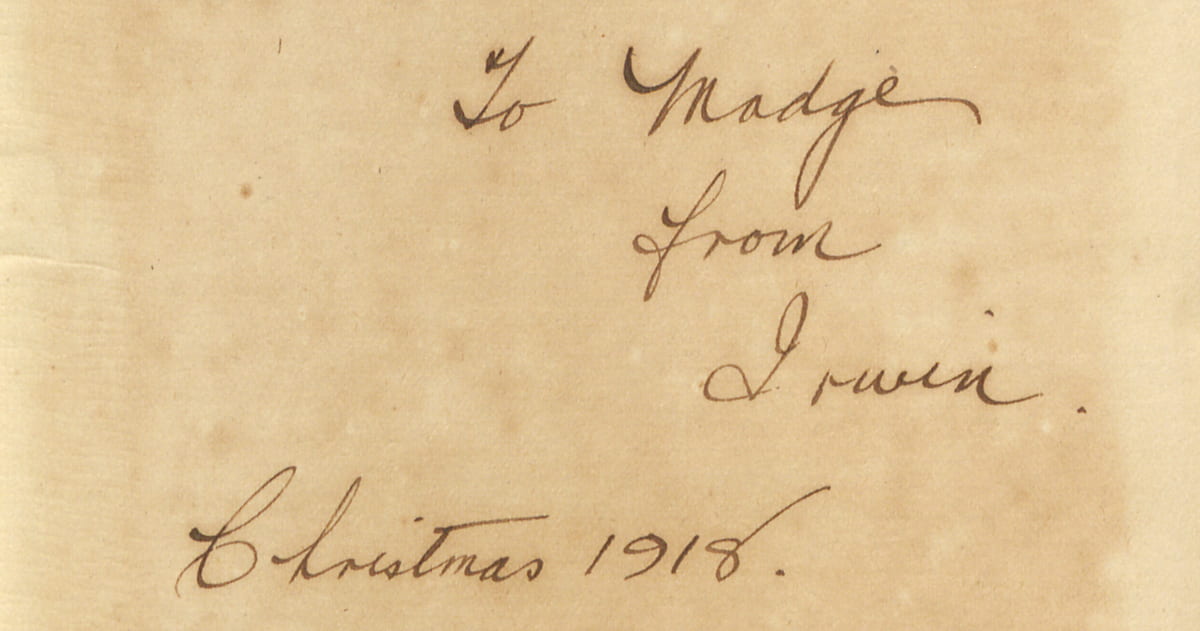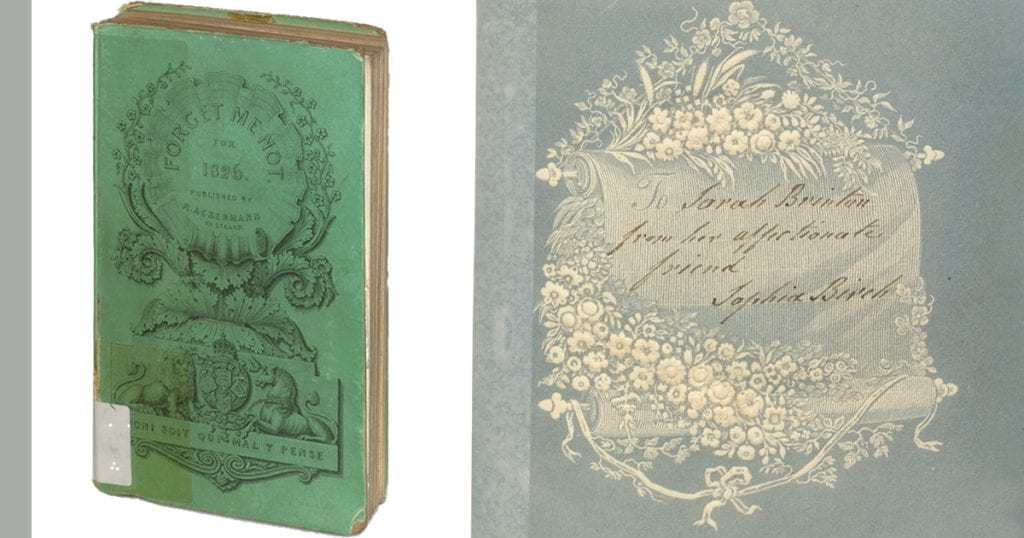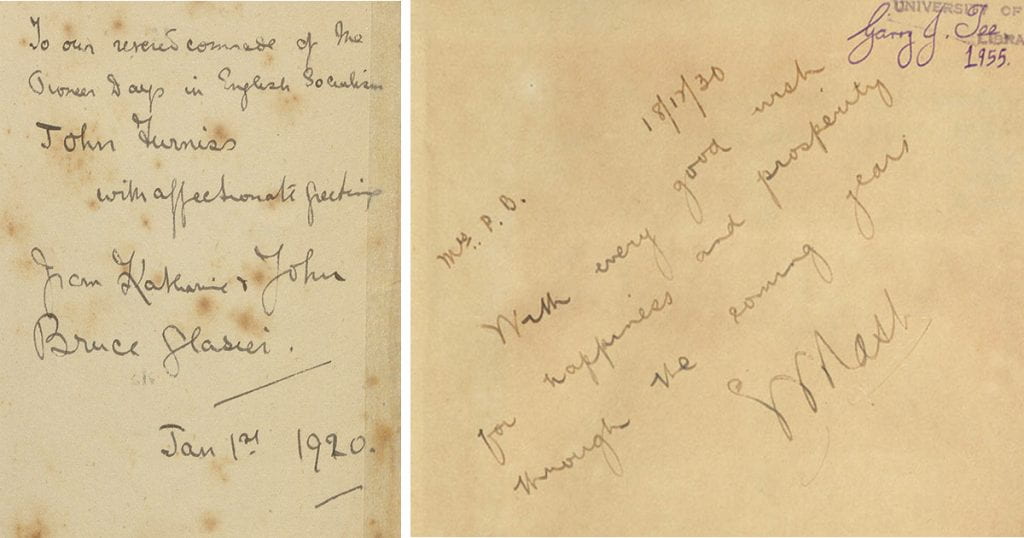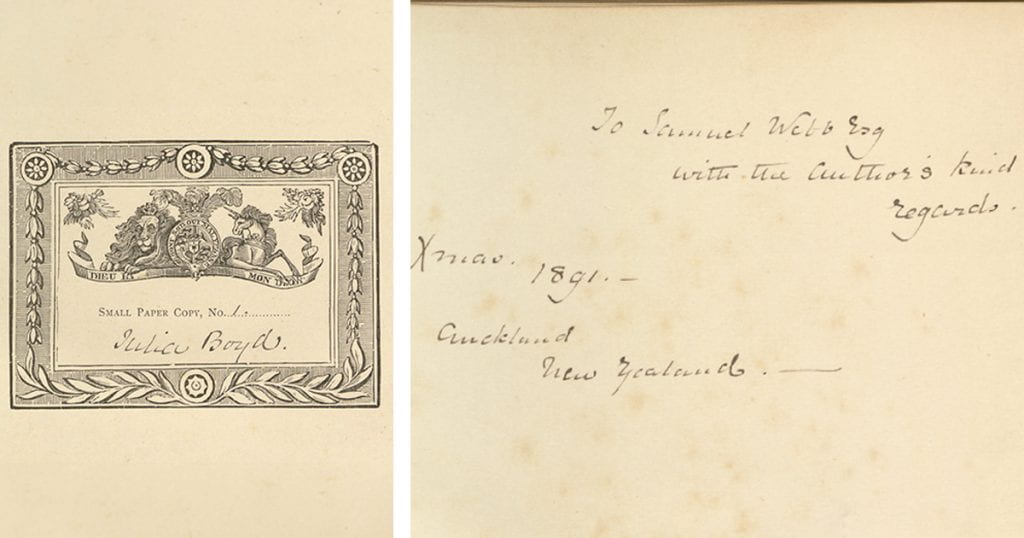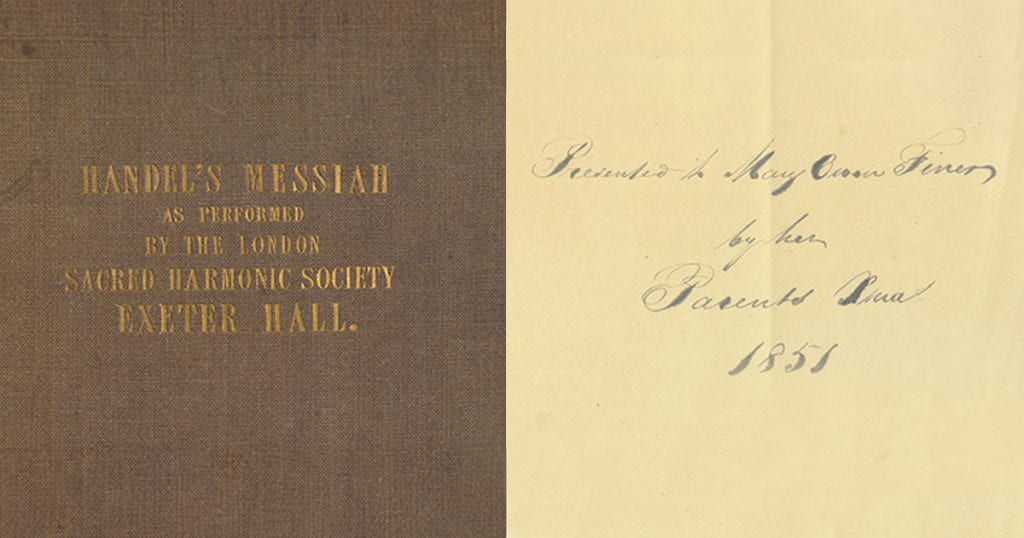At this time of year, many people are scouring bookshops for the perfect present for family and friends. In Special Collections, we scoured the shelves to see what books had been given for Christmases and New Years’ past. Here’s a selection.
Forget me not
Nineteenth century publishers helped take the guesswork out of which book to give by producing specially compiled and suitably titled works, such as Forget me not: a Christmas and New Year’s present for …
Issued annually from 1823 to 1847, these popular literary miscellanies were designed to “… serve as tokens of remembrance, friendship, or affection”. Edited by Frederic Shoberl, they featured poetry, prose and “graphic embellishments”. Among the contributors were notables like Mary Shelley, Lord Byron, and Mary Russell Mitford.
The annuals had engraved or embossed decorative devices in which to write personal messages. The one in this gilt-edged, pocket-sized copy for 1826 is inscribed: Sarah Brinton / from her affectionate / friend / Sophia Birch.
Personal is political
Books with a political focus were also exchanged. On 1 January 1920, Katharine and John Bruce Glasier inscribed a copy of Glasier’s own Socialism in song : an appreciation of William Morris’s “Chants for socialists“… to John Furniss, addressing him as a “revered comrade of the Pioneer Days in English Socialism”. The Glasgow-born Glasier (1859-1920) was a leader in Britain’s socialist and Labour movements while Furniss (1852-1922) was active in socialist circles in Sheffield before emigrating with his family to Aotearoa New Zealand in 1902.
Meanwhile, in December 1930, Walter Nash inscribed a copy of Bernard Shaw’s The Intelligent Woman’s Guide to Socialism, Capitalism, Sovietism and Fascism (1929) to a “Mrs P.B.”, sending her “every good wish for happiness and prosperity through the coming year.” Nash (1882-1968) was the Labour MP for Hutt at the time, and later served as Prime Minister in the second Labour Government. Mathematics Professor Emeritus Dr Garry Tee acquired the book in 1955 and subsequently gifted it to the Library.
Author’s own
Author Julia Boyd, like Glasier and others, chose to present one of her own works. The inscription inside this copy of her 1886 work, Bewick gleanings …, suggests she gave it to “Samuel Webb Esq” while visiting Auckland from England in 1891. She had also signed and numbered it as no. 1 of the small paper edition so the copy likely held special significance for her.
Born in 1846 near Durham, Boyd was a fellow of the Newcastle Society of Antiquaries. She collected books, engravings, coins and cultural artefacts. She gathered some of the latter in Aotearoa and around Te Moana-nui-a-Kiwa during a lengthy trip which ended with her death in Auckland on 10 January 1892, just weeks after inscribing her book.
‘Take down this book’
Poetry proved a popular gift genre, with several examples coming to light, including W.B. Yeats’ Responsibilities and other poems from 1916. Who were Madge and Irwin, how were they associated and was the volume exchanged in person at Christmas 1918, weeks after the end of the First World War? And who copied out `When you are old’, a Yeats poem not included in this collection?
Christmas music
In 1851, the parents of May Gwen Finer presented her with a score of George Frederic Handel’s The Messiah, arranged for piano-forte or organ. It was an apt gift as the oratorio, from 1741, was increasingly being performed at Christmas. It is tempting to imagine her quickly sitting down to play it for her family. This 1844 arrangement later belonged to mezzo-soprano Kathleen Reardon, a student at the University’s School of Music in the 1940s-1950s.
So, will the books that are so carefully chosen as presents and inscribed with personal messages this holiday season also be read, used and mulled over long into the future, as these ones have been?
Jo Birks, Special Collections

